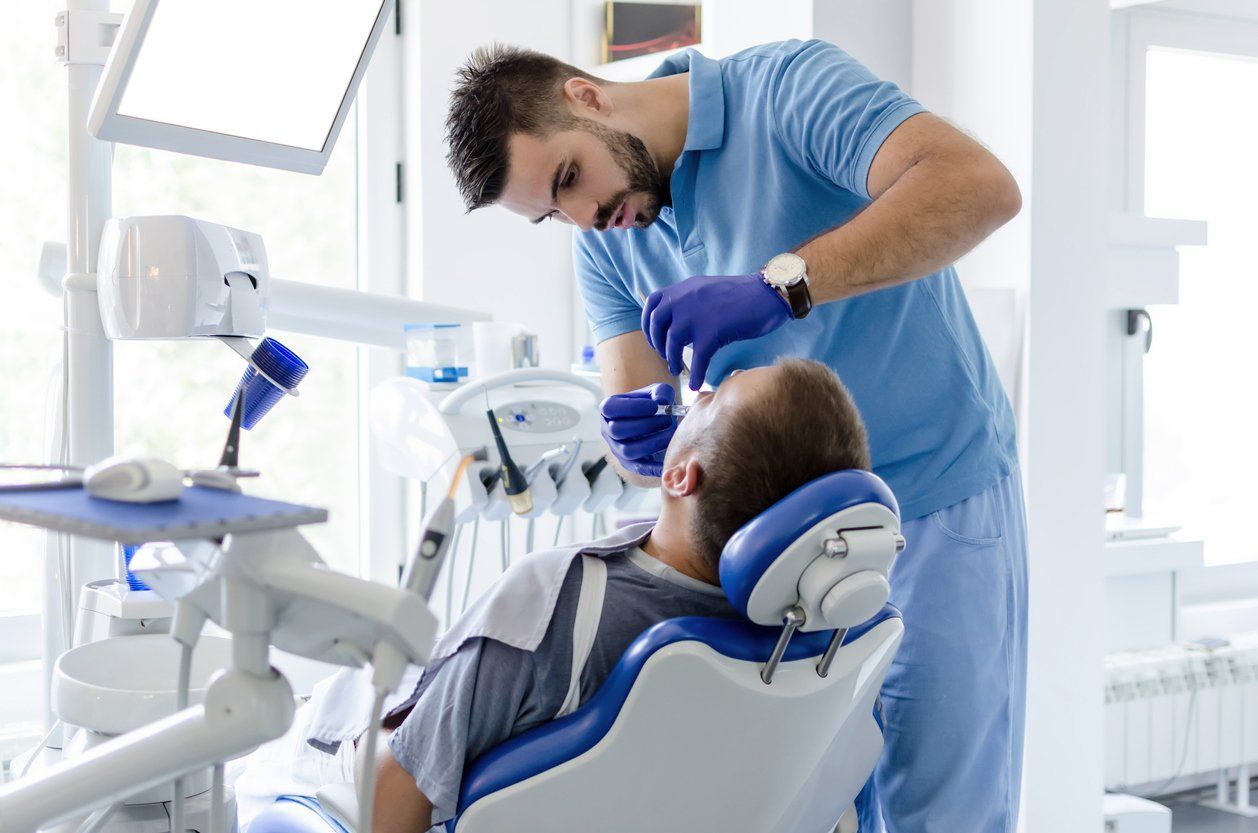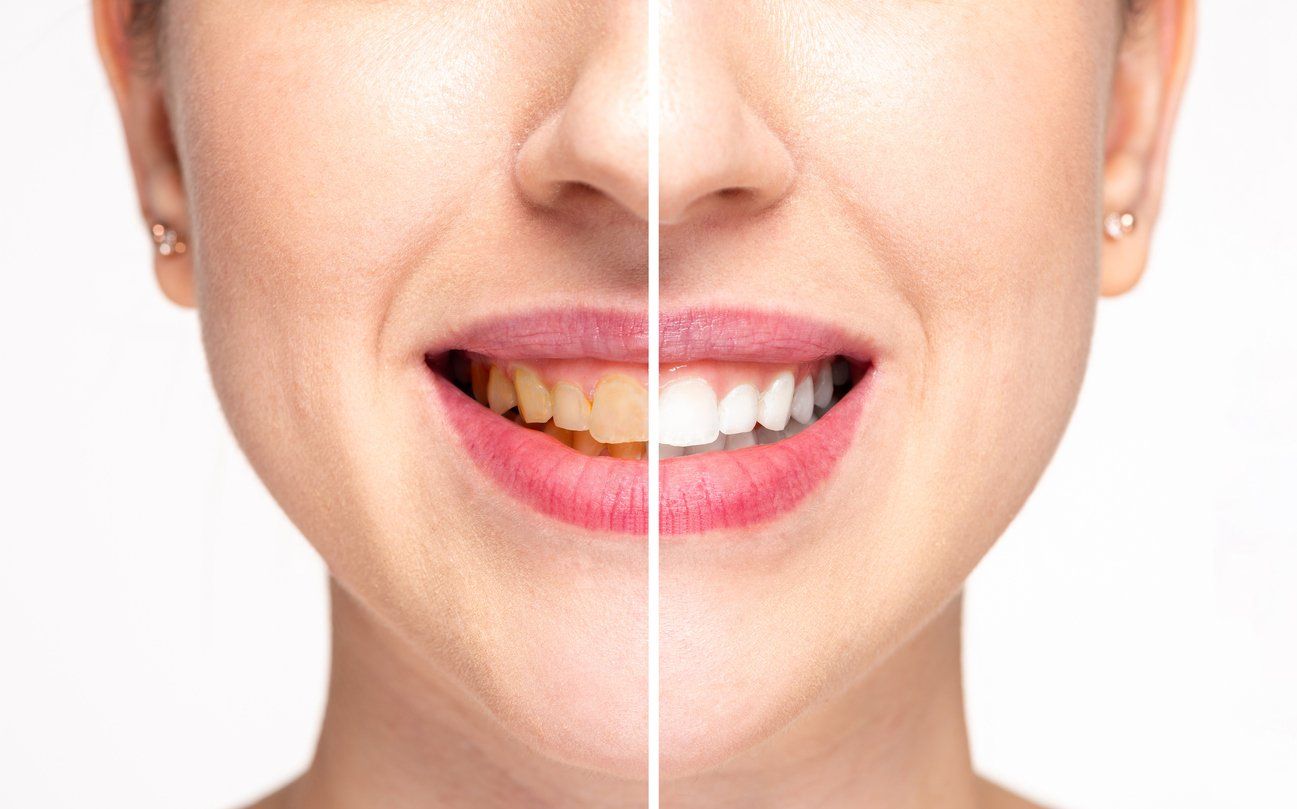Getting to the Root of the Problem with Root Canal Therapy
Today's innovative dental industry provides an array of treatment options for any problem you may have with your teeth, gums, and mouth. From fillings and sealants, all the way to artificial teeth, your dental team can provide solutions to protect your oral health. But what if your dentist recommends that you receive a root canal treatment? We'll be taking an in-depth look at this common procedure, from why it's performed to what you can expect during the procedure, to help you understand how your dental team can help you.
Root Canals: The Basics
As one of the most commonly performed procedures in dentistry, root canals can be performed on one or multiple teeth, for a variety of reasons. Root canals can ease pain and discomfort, help you get back to eating and chewing normally, and even save your current tooth. Since nothing can replace the look, feel, and function of your natural tooth, saving each and every tooth is a dentist's mission. As an alternative to removing the tooth completely, it's easy to see why dentists all over the globe perform root canals every day.
What Is a Root Canal?
A root canal is a specialized procedure that is done by a dentist in order to save or fix a tooth that is infected, decayed, etc. The term root canal comes from the treatment's mission, which is to remove and clean the nerve and pulp inside the root of the tooth, or root canal. The tooth's root canal is in its center, full of soft pulp and tissue. This is where the nerves to your tooth lay. During a root canal treatment, all of the pulp tissue and nerves are removed from the tooth and the roots are sealed.
Teeth that are fixed or repaired with a root canal treatment can last years and years with the proper care. In fact, root canal therapies have more than a 95 percent success rate.
Why Is a Root Canal Performed?

Root canal treatments are performed when a tooth becomes damaged, decayed, or infected for a variety of reasons. When the tissue or pulp within your tooth becomes damaged, your tooth begins to break down. Bacteria them begin to multiply within your tooth and cause serious problems. Damage to your tooth's root can be caused by a variety of things including the following:
- Deep or untreated cavities in teeth
- Fractures, cracks, or broken teeth
- Injuries to the tooth or gums
- Dental procedures that have exacerbated issues
Without receiving root canal treatment, infections and abscesses can form in the surrounding tissue in your mouth. This can result in extensive tooth damage, as well as possible health problems.
You may be suffering from an infection or decay in your teeth and need a root canal treatment if you are experiencing severe pain during chewing or with pressure, darkening of the tooth, tenderness or swelling, sensitivity to heat or cold, or small bumps located on gums near the site of pain.
The Root Canal Procedure
What to Expect
When your dentist has performed exams and x-rays and has determined you should receive a root canal, he or she will use your x-rays to determine where your tooth's decay is located. When you come in for your root canal procedure, here's what you can expect:
- Your dentist will administer local anesthetics to the affected area. Anesthetics stronger than that are typically not needed, but additional sedatives may be provided for those suffering from strong anxiety. Contrary to popular belief, root canal treatments are no more painful than other dental procedures such as cavity fillings.
- Once you are fully numb, your dentist begins the pulpectomy, where an opening is created in the tooth and the necessary tissue and pulp are removed.
- After removing all of the diseased tissue from the root canal, your dentist will use a specialized material to fill any exposed roots. Then, a temporary, cement-like material is used to seal off those roots.
- This is typically done in one visit and you are sent home to wait for your permanent tooth, or crownto cover the affected tooth. Your second appointment is typically done a few weeks later, in which your dentist finishes the root canal with a permanent solution.
Recovery and Aftercare

Following your root canal therapy, you may feel sensitive or mild pain for a few days because of the mouth's natural, inflammation response. While this can typically be managed by basic, over-the-counter pain medications, it is important to discuss severe pain levels with your dentist. Though there may be mild discomfort, most people can return to their normal, daily lives the day after receiving a root canal treatment.
As stated above, you must wait for another appointment to receive your permanent filling to the root canal. In between your first and second treatment, it is important to practice caution. Minimize chewing with the affected tooth and practice good oral hygiene habits. Your dentist will keep a close eye on your oral health, to ensure other areas of your mouth have not become infected. After a permanent crown has been placed, your tooth will look and feel natural and normal.
Cost
The cost of root canal treatments can vary greatly, depending on a variety of factors. These factors can include your dental insurance, the severity of infection, number of teeth affected, and more. And the cost of a root canal treatment does not necessarily include the final step of the process: the permanent tooth/sealant option. The national, average cost for root canal treatments of the front teeth sit at around $700, while bicuspids cost around $800 and molars around $1100. Overall this all depends on the location you're in, this would vary if you were in new york or Greenbelt MD.
Learn More About Root Canal Therapy
When your dentist advises you for a root canal treatment, don't procrastinate. Successful at treating current problems and preventing future ones, root canals are necessary for maintaining your oral health. At Marie Simon Dentistry , we are dedicated to optimizing the oral health of every patient that walks through our doors. For more on root canals, your oral health, and what we can do to help, contact our trusted staff to schedule your appointment today!










